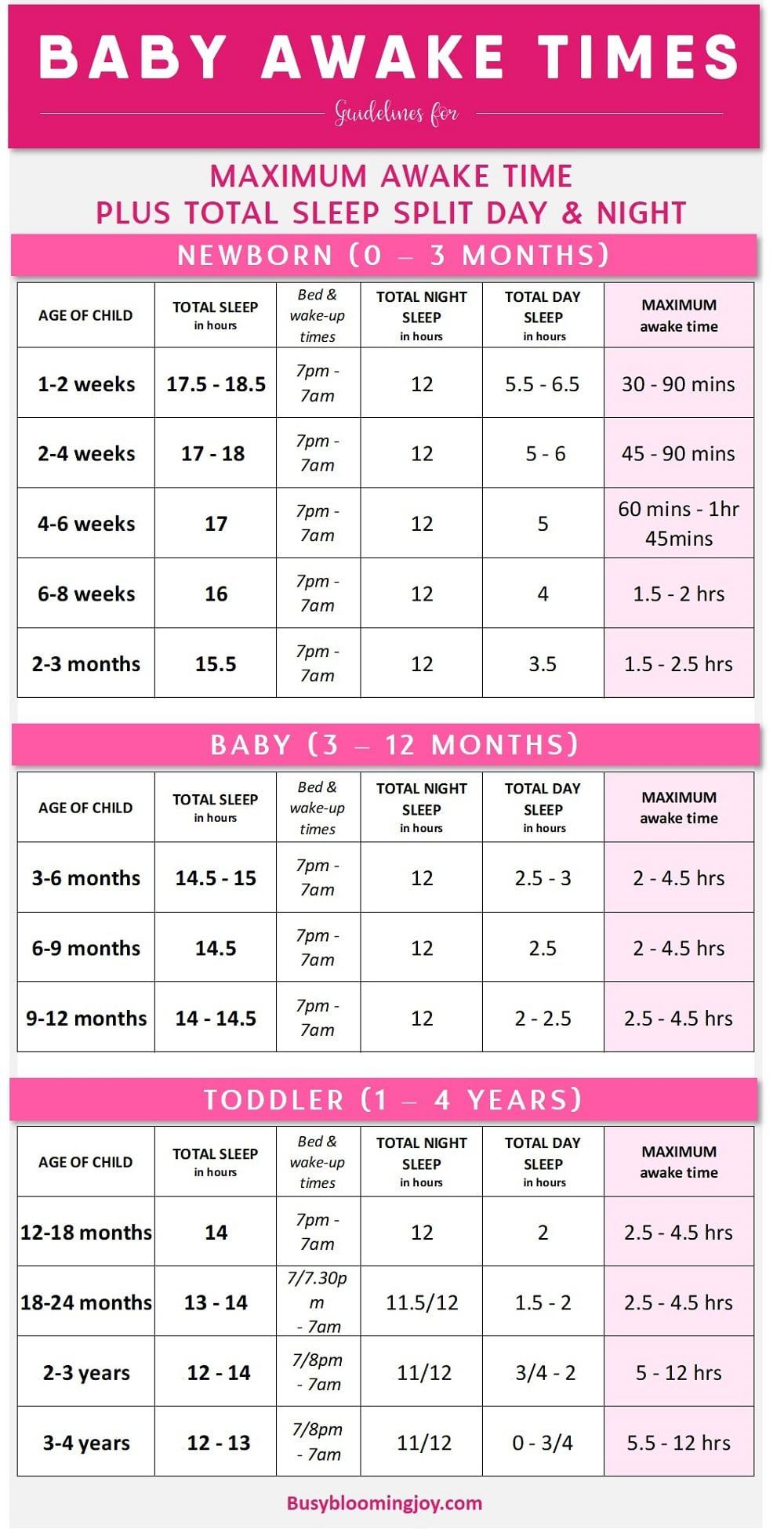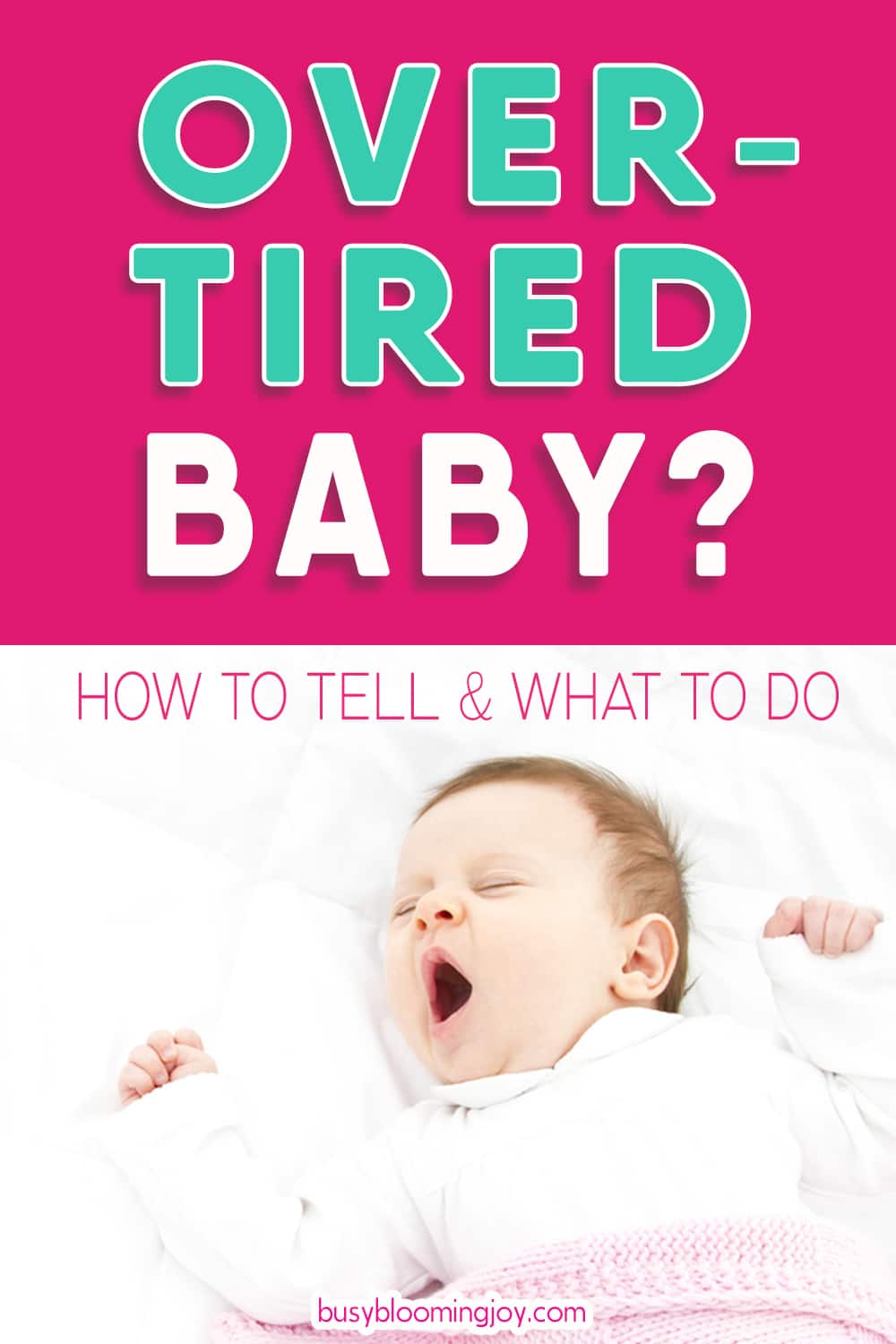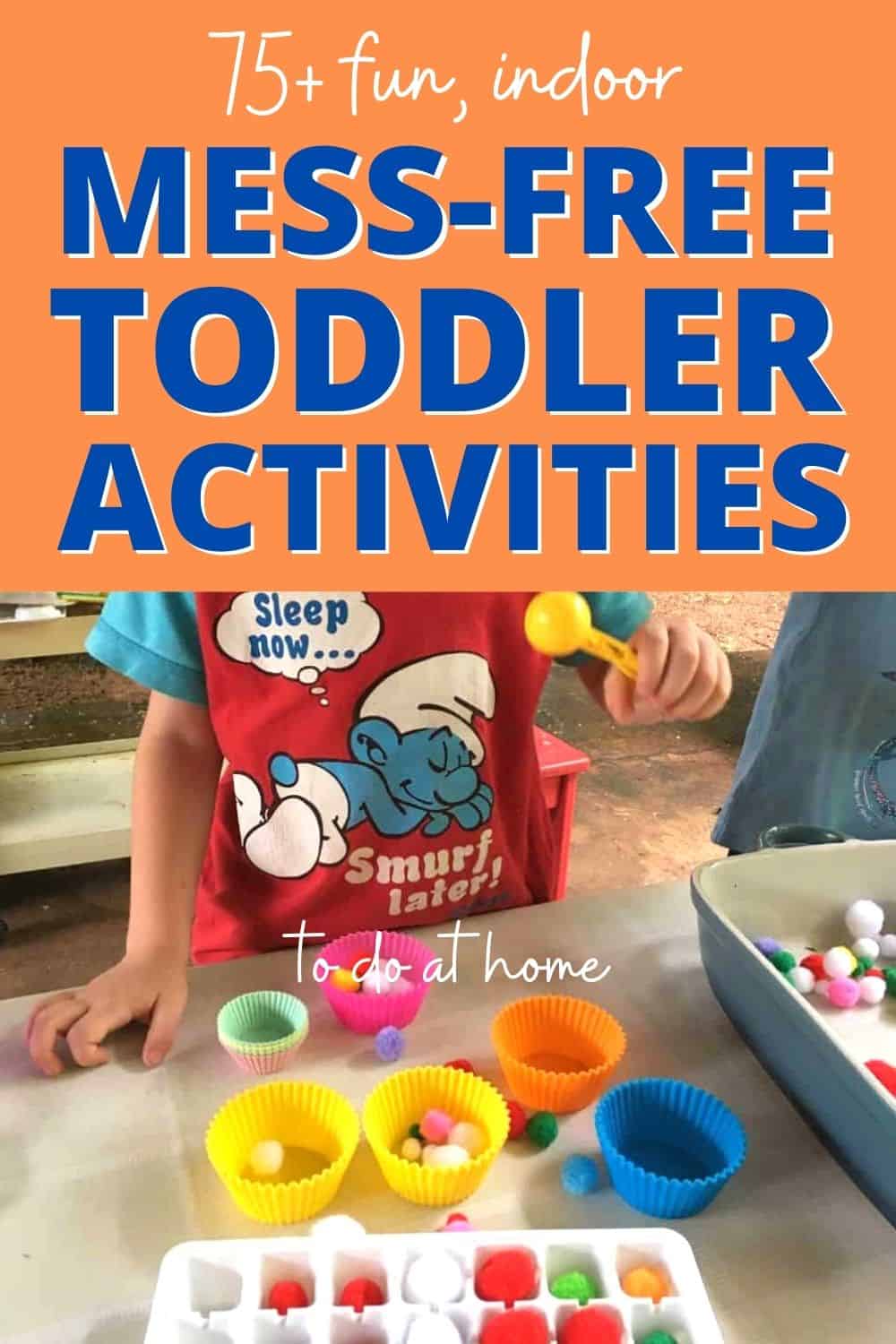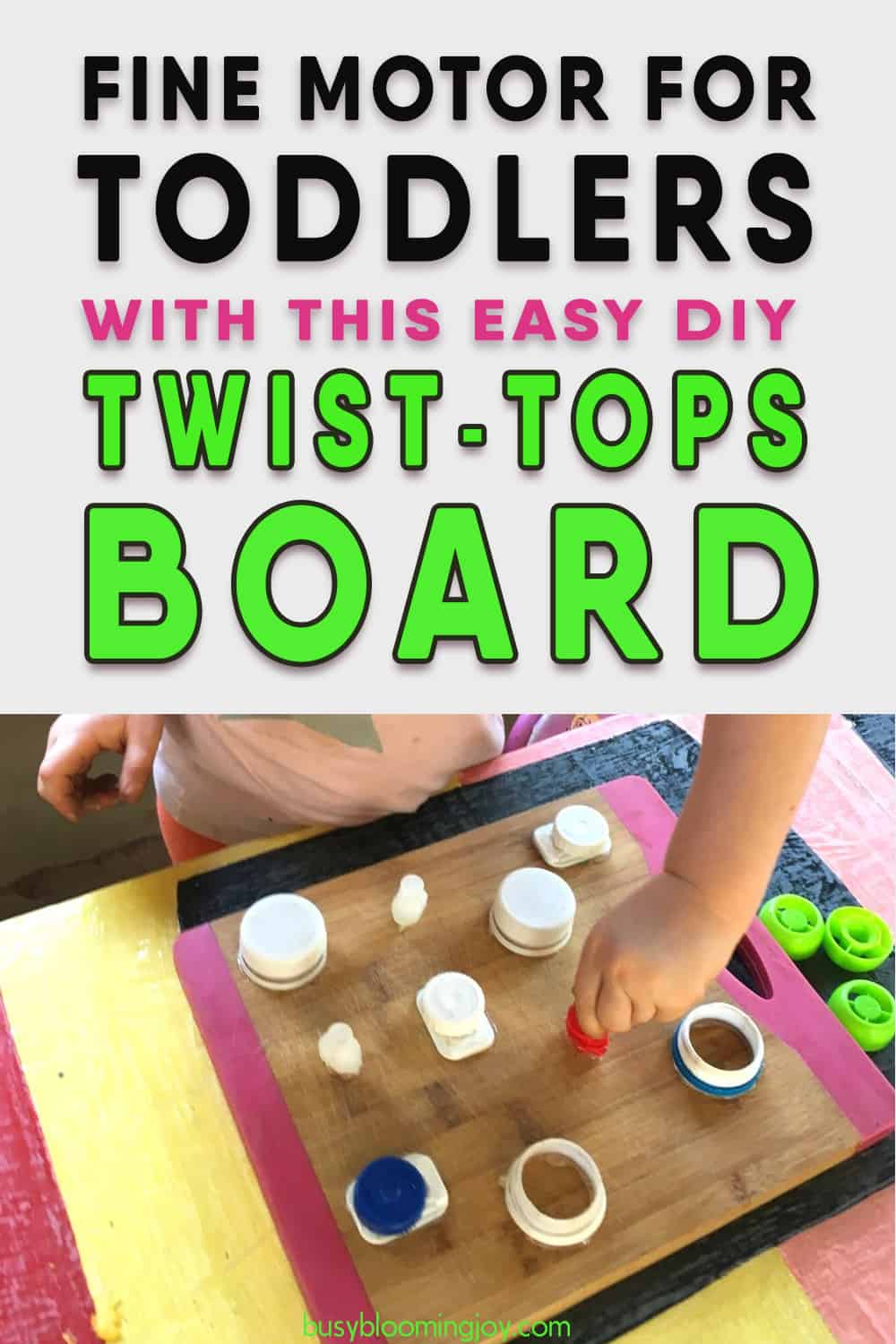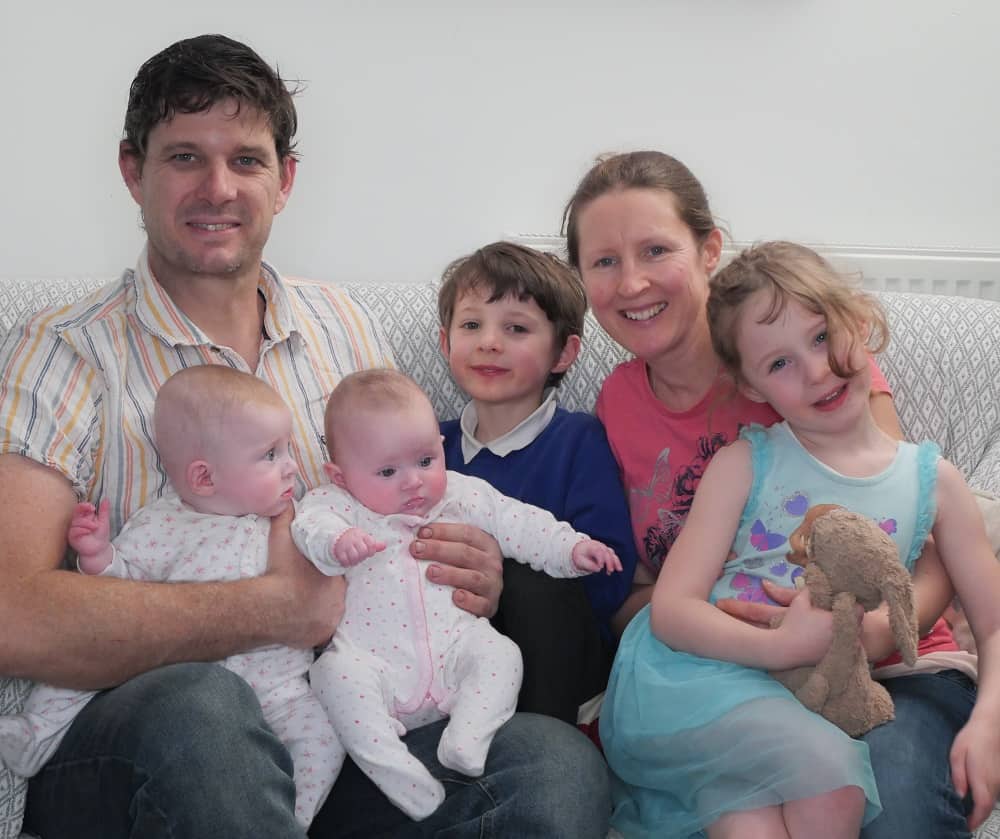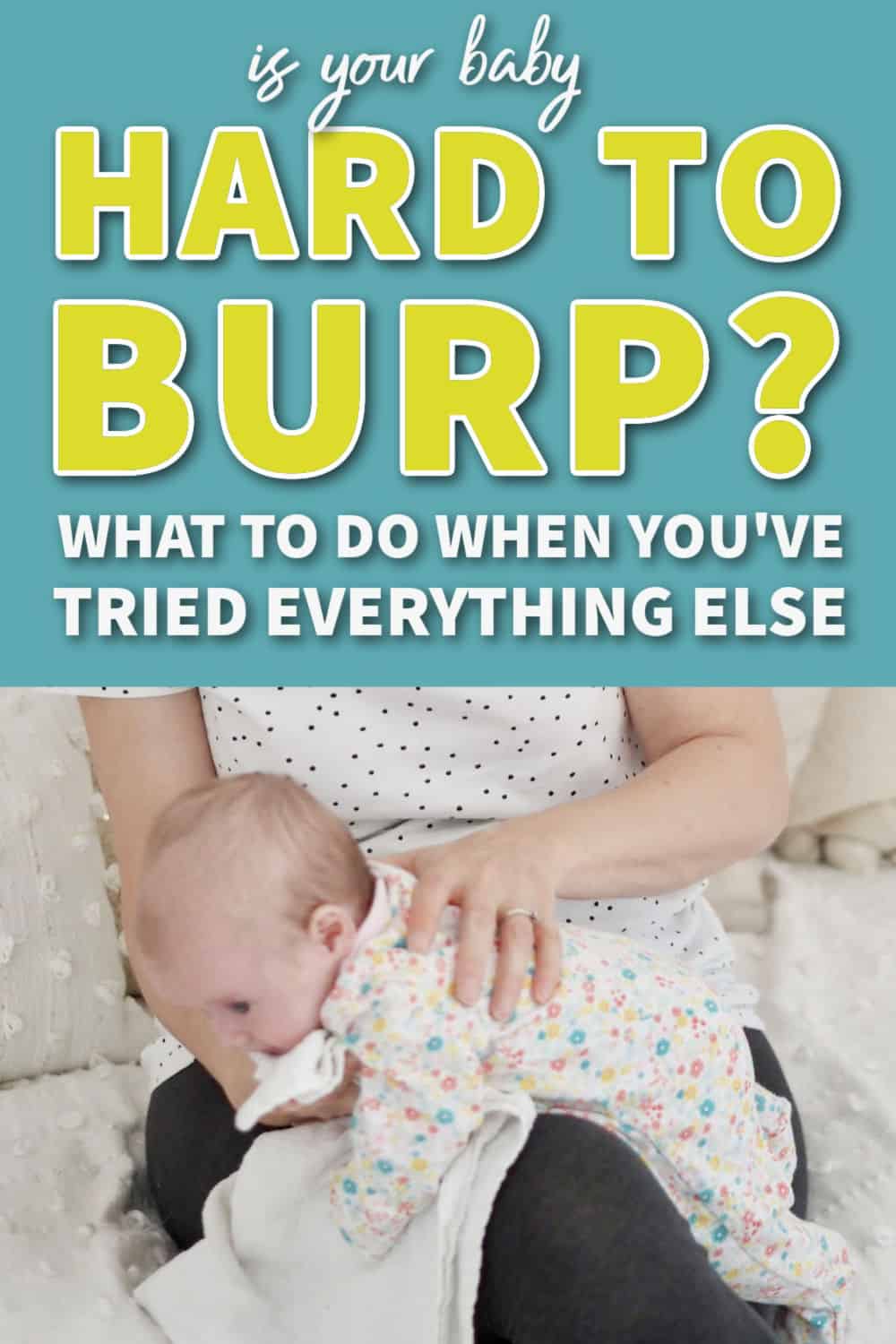Your baby can only stay awake so long before overtiredness kicks in.
An overtired baby fights sleep; settling one is rather like trying to coax a cat out of a tree. The higher it climbs the harder it is to get down, and the little darling becomes ever more stubborn about coming down with every branch it climbs.
Which is why I like dogs.
Over cats or babies. Only kidding. Only over babies, cats are top. Kidding again.
Let’s get back on track.
Babies sleep when they’re tired, right? That just sounds too simple.
Because it is.
But surely the longer babies are awake, the better they sleep, right? You’d think…
100% wrong.
Unfortunately, babies are often not good at going to sleep when they’re tired and even less so when overtired – fighting sleep, unfortunately, is what they’re good at.
And an overtired baby will sleep terribly too…and keep waking up…
So if you don’t want to wrestle with an overtired baby fighting sleep (been there, done that, right?) you’ve come to the right place.

Table of Contents
ToggleSigns & symptoms of an overtired baby
If your baby is fighting sleep i.e. seem to be flat-out refusing to sleep whatever you do, overtiredness could be the cause.
Baby may cry inconsolably for hours on end. You may think baby has colic. But it’s more likely that overtiredness is the reason for the colicky symptoms.
If these meltdowns occur at the end of the day, you may blame the witching hour; overtiredness is one of the major causes of the witching hour.
Related posts:
- Colic: what is it & is crying really inconsolable? Plus causes & remedies (yes, there ARE some)
- Got a ‘Witching Hour Baby’ on your hands? 7 steps to end evening fussiness for good
An overtired baby can be impossible to settle. Think stubborn cat up a tree.
Then staying asleep becomes a struggle; an overtired baby will keep waking up.
Fighting sleep, short naps, multiple-night wakings and an early riser (around 5 am) are all symptoms for an overtired baby
The inner stubbornness of wanting to be awake just won’t go away…
Ok, it’s really nothing to do with stubbornness, it’s 100% to do with hormones. We will get to this in a bit.
How to get an ‘overtired’ baby to sleep vs. a ‘tired’ one
Getting an overtired baby to sleep
You’ll probably be rocking, patting, shushing, nursing…. or even walking backwards up the stairs, dancing the two-step to Mozart and so on (I have no idea if the last one is possible but you get the gist.)
The full list of possibilities is something like this:
- swaddle
- white noise
- putting baby’s cot next to the washing machine
- rock/shush/pat your baby
- sway, dance, do a jig with baby
- walk with baby in a sling
- bounce on a pilates ball with baby in a sling
- hoover with baby in a sling
- walk with baby in the buggy
- drive baby around the block
- comfort feed
- and so on…
Basically, anything that foxes baby into thinking they’re still in the womb are tactics you’re going try.
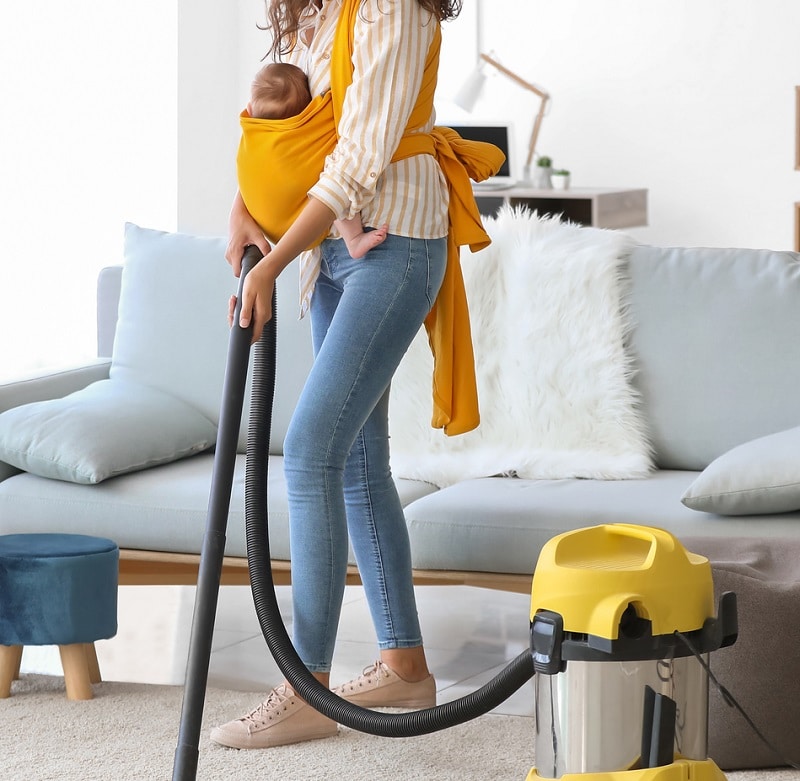
You’ve got to do what you’ve got to do.
Don’t worry an overtired baby will eventually sleep. Hang in there.
Then be conscious of the fact that baby is not going to sleep well. Get ready to dash in if baby wakes up after a short time and get that baby back to sleep…More on why this is important later.
Getting a tired baby to sleep
- Swaddle
- Wind-down routine (sing, massage, story etc) in magical sleep-inducing environment
- Say goodnight
- Place in cot
- Walk out
Yes, it really can be that simple. Not always and maybe not in the beginning. But if you aim to put baby down when tired but not overtired, chances are sleeping will come naturally.
You need to give baby that chance.
Hopefully, this alone gives you enough reason to want to avoid your baby becoming overtired.
Overtiredness long-term & why you need to act now
The overtired pre-schooler
I think we’re all pretty aware of how important sleep is. If you’re in the fog of the newborn phase you’ve probably not experienced sleep deprivation like it.
In childhood, even short periods of lack of sleep can lead to:
- Poor concentration
- Low threshold to stress
- Aggression
- A child that is easily triggered and frustrated
- Overactivity
- Depressed immune system and increased risk of illness
- Excessive weight gain
To read more about the importance of sleep to kids, this and this are great reads.
Presuming you’re just at the baby stage, most of these are not relevant.
But NOW is the time to tackle and minimize overtiredness in your baby.
Encourage healthy sleep habits at the baby stage to avoid sleep issues later on
Start encouraging baby to develop healthy sleep habits from the get-go.
Good sleep habits and your baby’s ability to sleep well should mean your toddler, preschooler, primary schooler etc won’t struggle with sleep issues, all which can lead to overtiredness and the long list of undesirables above.
For long-term healthy sleep habits, you want to avoid an overtired baby, because like we just saw:
Overtired baby = needs help to settle = becomes reliant on a sleep prop
This is fine occasionally and when baby is small.
The problem comes when you’re still using these methods at the 3-4 month mark. At this point, there’s a step-change in the way baby sleeps (the so-called 4-month sleep regression).
Anything you’re using to help baby to go to sleep will then quickly become a sleep prop or negative sleep association.
Your baby will be unable to self-settle and instead will need this sleep prop to sleep for many months to come.
This can be a tough nut to crack, which is why it’s all too easy to have a toddler waking multiple times a night. This means sleep issues for the whole family.
If you value your sleep and your sanity, you want to avoid this at all costs.
When baby is able to fall asleep without help your baby sleep world will completely change. And since your mindset and ability to exist in a productive fashion (ie get the sh*t done without totally losing the plot) is so closely linked to how much sleep you’ve had (AKA how well your baby is sleeping), your baby sleep world = your whole world.
So avoiding an overtired baby needs to be high up your agenda if you have a newborn.
The physiological reasons that overtired babies are poor sleepers
Ie why an overtired baby keeps waking up…
Melatonin and cortisol
There are two important hormones that affect sleep and wakefulness: melatonin and cortisol.
In a nutshell, melatonin helps induce sleep. It’s inhibited by light so as darkness falls, melatonin levels rise, helping us to wind down, make us sleepy and want to fall asleep.
Then there’s cortisol, the ‘stress hormone’, the main driver of the fight-or-flight response.
In high doses, it’s similar to downing a Redbull, but it also has many other more mundane functions involving inflammation, blood sugar levels and blood pressure.
A natural rise in cortisol throughout the day is normal and natural. By the end of the day when we start to slow down and darkness approaches, melatonin should take over.
When we go to sleep, cortisol levels drop down further and the longer we sleep, the lower it drops.

Now, remember back to a night out pre-baby when you enjoyed a night out and a not so sneaky Jaegerbomb or two? (Who am I kidding, two is never enough.)
Or when engrossed in the latest Homeland, clenching teeth, butt cheeks and who knows what else as Carrie single-handedly tries to save The Presidency (now there’s a chick living off cortisol with a side of adrenalin)?
Whether it’s caffeine or cortisol, too much of either means sleep won’t come easily. Melatonin doesn’t get a look in.
Cortisol is the reason your baby fights sleep.
It’s not just the getting to sleep…
This is where cortisol and caffeine differ…
Once asleep the effects of caffeine are pretty much done.
Cortisol levels, on the other hand, can continue to disturb while you’re asleep…
So if you go to sleep in a highly stressed state, chances are cortisol will mean you have a disturbed night, tossing and turning, waking fully in the middle of the night and waking early.
The same is true for your baby.
Cortisol will continue to disturb baby while asleep
The very nature of newborn sleep means a lot of time is spent in light sleep so the high levels of cortisol coursing through your little one’s body will be even more disruptive than to an adult.
So an overtired baby not only fights sleep but will keep waking up…
Hence the short naps, multiple-night wakings and eyes popping open at the crack of dawn…
The crux of it is, overtired babies sleep poorly.
Preventing an overtired baby by keeping cortisol levels from escalating
From a physiological point of view you need to:
Stop cortisol from escalating AKA don’t let baby stay awake too long
You don’t want baby running on a cortisol high and turning into a frazzled, agitated, heap of tears.
You need to figure out suitable awake times for your baby.
Give cortisol levels the chance to drop back to basal levels AKA enough sleep and longer naps
Baby needs to get enough sleep in total (a total of day and night sleep) and ideally with some longer naps in the day. Longer, solid naps meaning multiple sleep cycles, so 1.5 to 2.5 hours long.
This is to allow cortisol levels to return to basal levels (remember, the longer baby sleeps, the more cortisol levels drop)
3 STEPS TO AVOID AN OVERTIRED BABY (+ STOP BABY FIGHTING SLEEP)
PREVENTING AN OVERTIRED BABY #1: Figuring out baby’s awake times
There’s a window of opportunity when baby is tired and will easily settle, if given half the chance. Possibly this window is only open for exactly 3.2 minutes between the time your baby is happy and contented and in full-on, overtired, meltdown mode.
Figuring out how long baby can stay awake before becoming overtired and starting to fight sleep is crucial.
You need to figure out baby’s ‘awake times’.
A teeny, tiny newborn may be ready to fall asleep after just 45 minutes or even less. That includes time spent feeding; because newborns are super slow to feed, that entire time might be taken up with glugging down milk.
But of course, as baby grows and develops, sleep needs diminish a little and baby should be content to stay awake a lot longer.
So by 6 weeks, olds baby should be just fine after an hour and a half.
Then, of course, there a fair few things that can change whatever magic number you’ve decided on from one day to the next, or even from one awake time to the next; being aware and responsive to your baby is part of the skill you’re going to learn!
Start off by using this baby awake time chart as a guide
Note I said guide. All babies are different.
But if your baby is staying awake wildly longer than the times suggested (going on 5 hours rather than 1 hour) it’s highly likely they are overtired.
You might be convinced your baby just doesn’t need that much sleep, that your baby is the exception. But I think you’ll be hard-pressed to find anyone in the baby sleep department who will agree.
Just because baby is staying awake for long periods does not mean your baby doesn’t need much sleep.
Remember: babies do not necessarily go to sleep when they are tired. Baby sill start fighting sleep instead…
Learn your baby’s specific tiredness cues (things they are doing & things they are ‘saying’)
There are the obvious signs of tiredness that are quite easy to spot, like yawning, then there are the more subtle ones, like avoiding eye contact.
Then there is baby’s own special word for “I’m tired”. Yes, really.
You need to become an observer and get your eyes and ears tuned in.
WATCH for these signs that baby is tired
SIGNS THAT A NEWBORN IS TIRED
- Yawning
- Staring vacantly, eyes glazing over
- Avoiding eye contact
- Moving jerkily
- Frowning
- Clenching fists
- Fussing and crying
- Become very still
ADDITIONAL TIREDNESS CUES FROM OLDER BABIES
These additional cues make it a bit easier:
- Rubbing eyes and ears
- Becoming clingy
- Losing interest in toys
- Sucking fingers
- Turning head away from stimulation
SIGNS THAT A TODDLER IS TIRED
With toddlers it goes back to being a little tricky. A lot of these I see in my toddlers just because they’re ahem…. toddlers.
But if you know your toddler well and she’s normally the delightful, sharing, patient kind, please let me know your secrets but is showing more monster-like traits then tiredness could be part of the issue.
Signs of an overtired toddler:
- Quickly become upset
- Lose patience quickly
- Fuss over their food
- Fuss over everyday chores/tasks like cleaning teeth
- Become aggressive
- Over-excited
LISTEN for your baby’s specific tiredness cry
According to some crazy fantastic baby whisperer, Priscilla Dunstan, the “owh” cry means “I’m a bit sleepy, please put me to bed”.
Here we’re talking about low-level cries, sounds even. Not full-on, bawling the eyes out crying.
If you’ve got to that point, the message is probably more like “I’M COMPLETELY OVER IT NOW…JUST DO SOMETHING, I DON’T EVEN KNOW WHAT ANYMORE.”
So if you can figure out the tiredness cry/sound from baby’s other 4 distinct cries/sounds you can get your little one wrapped up and popped into bed long before overtiredness hits.
Learning how to decode your baby’s cries is useful for a lot of other reasons too. Wondering whether you have a gassy baby on your hands or if hunger is the issue? With any luck, your baby will be telling you.
Because what you don’t want to do is end up comfort feeding baby at every upset – Golden Rule no.5 for successful breastfeeding.
The 5 distinct baby cries that make up Dunstan’s ‘Universal language of newborn babies’ are as follows:
- Neh = “I’m hungry”
- Eh = “I need to burp”
- Eair = “I have lower gas pain”
- Heh = “I’m experiencing discomfort”
- Owh = “I’m sleepy”
This video has a clip of each one.
PREVENTING AN OVERTIRED BABY #2: ACT within the window of opportunity (before overtiredness hits and baby starts to fight sleep)
If we’re honest, it’s often us parents, that ignore a good deal of tiredness cues.
Many a time I spotted the eyes glazing over, heard the ‘owh’ and was even aware that we were up to baby’s maximum awake time and did…. nothing.
Tiny slither of a window of opportunity gone. Replaced by overtired baby. In. A. Flash.
This can be very baby dependent too.
My son also has this incredible ability to go from high speed to calm and quiet easily and in a short space of time. He rarely becomes overtired.
The window of opportunity to settle him is open for a good long time.
In the baby stages, he could manage a good 20 minutes of yawning and “owh-ing” and still settle fairly easily. (Not that this was ever the plan, per se, but it was easy to become complacent with him.)
Even now at nearly 4 he can go from fully pumped up to fast asleep in 30 minutes flat. (We’ve timed it.)
My daughter, the poor little poppet, has been less fortunate and inherited my easy ability to become overtired to the point that falling asleep, even calming down, can become almost impossible. (Ok, so I am able to calm down, let’s just get that straight.)
If we didn’t watch her like a hawk as a baby, we’d be in trouble. The “witching hour” was almost a given. (She also struggled with reflux and dairy issues so on the whole, it was not a fun year for anyone.)
Her awake times were critical to master!
Her window of opportunity was at the sub-5-minute mark as a small baby.

Practical tips to avoid missing the magic window of opportunity
Ok, so you’ve figured out those awake times. You know the signs that your baby is overtired. You know you have to act when you see them. But sometimes that’s not all that easy.
1 – Watch the clock or use an app
Actually keeping track of time is key to not letting baby get overtired.
I’d definitely recommend using an app over watching the clock. Even without mom brain I don’t reckon I would have been successful in keeping track of how long baby had been awake without an app.
There are a lot of baby sleep/feeding tracking apps to choose from – the free version should have a mountain more features than you need. This article has a choice of 20 different apps for some guidance.
2 – Encourage naps on the go if necessary
If you’re out an about because, you know, life still has to go when baby needs to nap, encourage that nap on the go.
Babies do not sleep as well in the car or strapped to you. But that sleep will still go a long way in getting baby some rest and rebooting cortisol levels. A nap on the go is better than no nap.
If nap time is nearing and you are out, do your best to create a sleep-inducing environment:
- IN THE BUGGY – pull the hood down to block out the noise, light and distractions
- IN THE BABY CARRIER – if baby is looking out to the front, switch baby to face into your chest. Again this blocks visual distractions
- IF OUT & ABOUT – for example at a friends house, take baby somewhere quiet and carry out as many elements of your pre-nap wind-down routine as possible.
In all these cases the point is to minimize the stimulation baby is getting, which may get the cortisol going.
Providing a calm, relaxing environment with minimal lighting is what you’re going for. This will give baby a chance to fall asleep with minimal help from you.
But if you do have to occasionally aid baby to sleep, that’s also fine, even if baby is at the point of developing sleep associations.
Even at this point, assisting baby to sleep is definitely the lesser of two evils when it comes to avoiding the complete catastrophe that might hit with overtiredness.
PREVENTING AN OVERTIRED BABY #3: Ensuring baby gets enough sleep
It’s not enough that baby is not awake too long. Total number of hours snoozing are important too.
Check how much sleep baby is getting
Just like there’s no hard and fast rule for how long baby can stay awake, there are no magic numbers you can refer to when it comes to a baby’s sleep needs.
But, if you want a guideline, the baby awake times chart above includes recommendations for total sleep you should expect baby to need. More on baby sleep needs here.
Again, this comes down to your baby and a whole host of other things that might mean your baby needs more or less sleep on any given day.
But if your baby is wildly off these numbers and sleeping a lot less, you’re probably going to be dealing with an overtired baby.
If your baby is sleeping a lot more, awesome! As long as baby is sleeping well at night (ie waking only to feed and isn’t difficult to settle back to sleep) then bring it on, the more sleep the better.
On the other hand, if baby is sleeping all day and wants to party all night, day night confusion might be an issue. Check this post for simple steps to fix this: Newborn Sleeps All day? 10 fail-safe tactics to fix day night confusion fast!
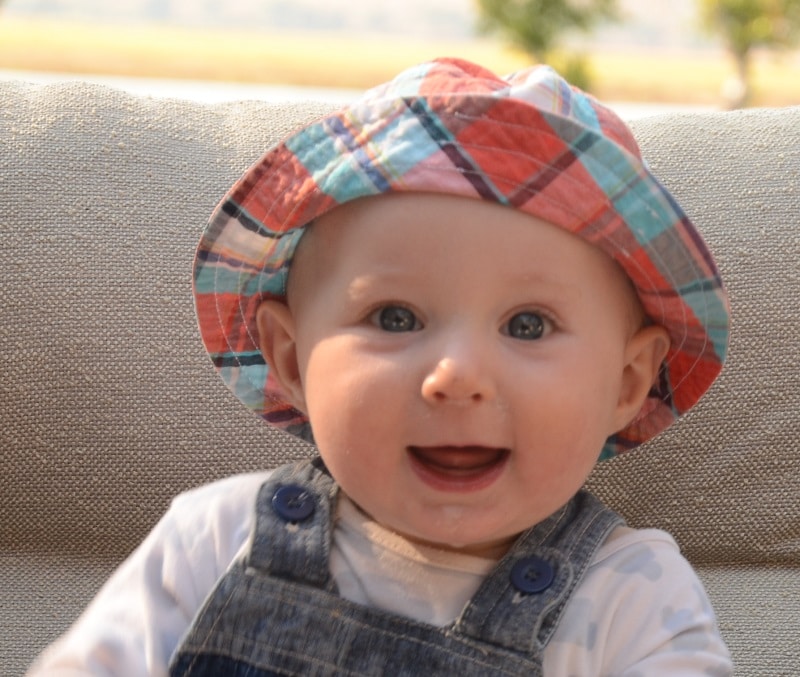
PREVENTING AN OVERTIRED BABY – BONUS TIP
Encourage long, restorative (cortisol lowering) naps.
The longer baby sleeps, the lower cortisol levels drop
So naps that go way beyond the 45-minute mark, i.ie multiple sleep cycles, means more chance for cortisol levels to reset.
There are also plenty of other important restorative and developmental processes that really make headway with a solid 2+ hour nap. Sure, your baby will do well with plenty of 45-minute chunks of sleep in the day. But adding at least 1 longer nap will really crank baby’s restfulness up a notch.
Super-short naps (less than 30 minutes) will leave everyone frustrated
These won’t be nearly as restorative, especially if baby doesn’t reach deep sleep. (Unlike in adults, deep sleep comes at the end of the newborn sleep cycle.)
Cortisol will also be left at a high.
Think of how much better you feel with long interrupted periods of sleep versus fragments of sleep here and there. And if you’re in the midst of newborn phase you know that only too well…
Long naps are a massive game-changer
Let’s face it, a serial short snoozer can be pretty exhausting. Longer naps will help you too.
Hence why this newborn sleep and feeding schedule is based around a long 2-2.5 hour nap in the middle of the day.
How to encourage longer naps
The below is just a brief overview of encouraging longer naps and covered in a lot more detail in this post: Fed-up with short naps? 9 tactics to take 2 hour naps from dream to reality
Acting within your baby’s window of opportunity gives baby a good chance of a decent nap.
Otherwise, there are 3 main reasons why your baby takes short naps:
1 – something disturbs baby (internally or externally)
You need to ensure nothing disturbs baby when transitioning between sleep cycles or when in light sleep. Here are the main culprits with a solution for each:
- the startle or ‘Moro Reflex’ – so swaddle
- light – ensure the room is pitch black
- banging doors/screaming toddlers – use white noise/music/other a background noise
- being too hot or cold – ensure baby is at a comfortable temperature
- hunger – you may want to top-up baby with a feed before trying for a longer nap
- you! – don’t rush in when baby stirs, but rather ‘pause’ (babies are very noisy restless sleepers; more on newborn sleep cycles and patterns here)
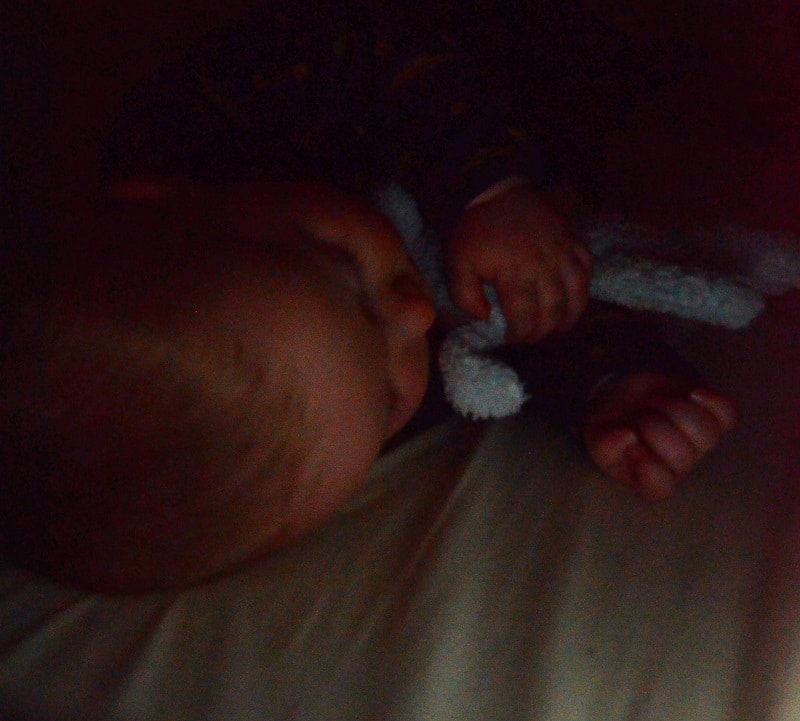
2 – baby is unable to go back to sleep after disturbance
Newborns are sometimes not that good at linking sleep cycles.
Older babies (4+ months) may have become reliant on a ‘sleep prop’. Losing the sleep prop is key to those longer naps. link sleep cycles.
Unfortunately, this normally involves a few tears, and sadly might be the only way to get your baby to sleep better.
I know it’s tough… I’ve been there. If you’re considering this route but it makes you nervous keep your eye on the long-term vision of a baby who sleeps well – a skill that will set her up for the toddler years and beyond!
3 – baby is not tired enough
Probably not an issue for an overtired baby!
But this is also covered in the longer naps post. Well worth a read if your baby is struggling with short naps.
The link again: Fed-up with short naps? 9 tactics to take 2 hour naps from dream to reality
Breaking the cycle of an overtired baby
Is baby showing lots of tiredness cues in the day, waking cranky and still seems tired? baby fighting sleep? Is baby sleeping a lot less than those sleep charts suggested? Like 3-4 hours less every day?
In which case, cortisol is probably wreaking havoc with your baby’s naps. That’s the disturbance causing baby to wake, meaning baby starts off tired… Overtiredness is pretty much a given.
It’s a vicious circle.
You’re going to have to step in and continually help your baby to sleep in order to bring baby out of the sleep debt.
Help baby get to sleep. When baby wakes, help baby get back to sleep.
Don’t worry about sleep associations and props right now. Recovering that sleep debt needs to come first.
Make longer naps a habit and increase the total number of hours baby is sleeping.
Sleep begets sleep.
The more sleep baby gets, the better baby should sleep. And the less baby will be fighting sleep.
Pre-sleep wind-down routines, more structured bedtimes and naptimes will also help. These limit awake times and so help avoid overtiredness and will make removing those sleep props a whole lot easier.
Wondering what that would look like? Here’s a sleep schedule you can try.
WARNING: things that may make baby more tired (overtired baby fighting sleep alert!)
Hopefully, after you’ve read this post you’ll be the envy of your friends with a baby who’s never overtired.
But let’s get real, babies needs change at the drop of a hat.
What you’ve finally figured out as the perfect awake time, the perfect nap time and the perfect amount of sleep your baby needs, may suddenly change.
Babies do like to keep us on our toes.
Here are some easy clues to look out for when it comes to predicting whether baby needs more sleep and less time awake before reaching overtiredness:
- too many naps on the go (not as restorative as a nap in baby’s normal sleep space)
- too many short (sub-45 minute) naps
- multiple night wakings due to illness/teething etc
- growth spurts (can leave baby more tired but often less able to fall asleep)
- developmental leaps (can disturb baby’s sleep increasing tiredness)
Don’t look at days in isolation – if baby doesn’t nap well the one day (ie too many naps on the go or naps too short), the overtiredness is likely to linger the next day. Expect baby to need more sleep and reduced awake times.
Remember, don’t just clock watch, look out for those tiredness cues and act on them.
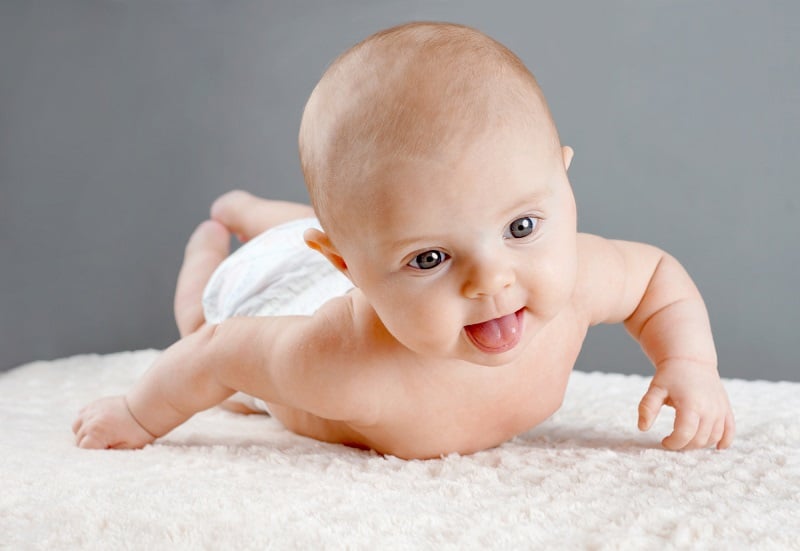
In summary
If you’re struggling with an overtired baby who always seems to be fighting sleep, hang in there!
You should now know why your overtired baby keeps waking up.
More importantly, you should be able to hatch a plan to avoid your baby becoming overtired in the future. Because you do and you want to start NOW – the future healthy sleep habits of your baby depends on it!
Watch those awake times, look and listen for those tiredness cues and settle baby to sleep before overtiredness hits.
Because remember:
Sleep begets sleep
Enjoyed this post? Any questions? Any weird and wonderful things you’ve tried to get your overtired baby to sleep? Let me know in the comments!


